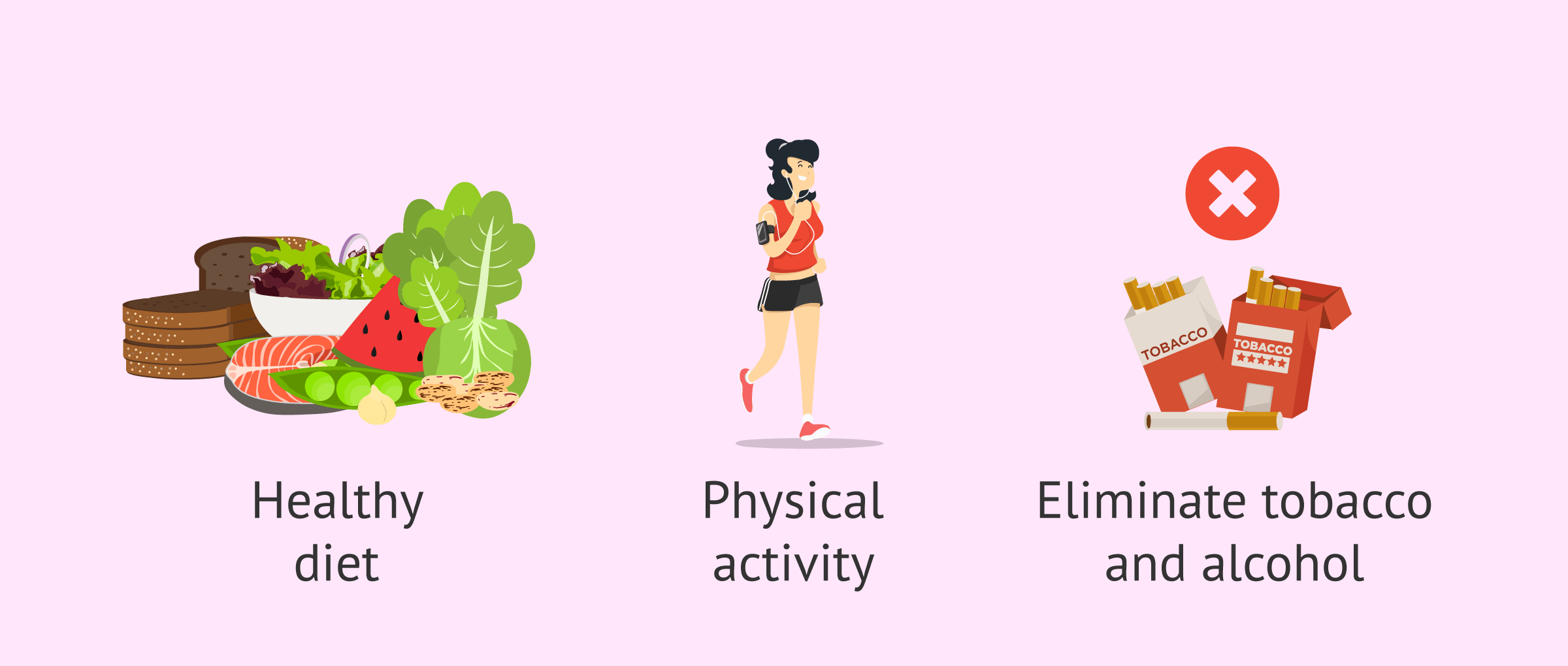Diet influences all vital human functions, including fertility. To explain this we can look at 3 different factors.
Firstly, weight has a great influence on the fertility of women. Excess weight is in itself a risk factor for infertility, and in the case of assisted reproduction techniques a high body mass index can be related to implantation failure and miscarriages.
Excess body fat can cause alterations in the hypothalamic-pituitary axis and promotes insulin resistance, which increases the production and release of ovarian androgens. In short, it can be a bomb in our reproductive hormonal system.
At the other extreme, excessive fat deficit is also associated with hormonal alterations, so that periods of amenorrhea, anovulatory cycles, alterations in the phases of the cycle, etc. can occur.

Secondly, the type of nutrients consumed has an influence on fertility. If we look at macronutrients we can see that a low-carbohydrate diet improves fertility, related to improved insulin sensitivity. The consumption of vegetable proteins versus animal proteins has also been related to a better ovulation capacity.
If we look at the micronutrients we observe that it is essential to maintain a correct intake of vitamins. Folic acid, Vitamin B12, D, A, C and E. Finally there are the minerals, highlighting iron, iodine, selenium and Zinz.
On the other hand, it is important to remember that gluten-free and/or dairy-free diets are not related to increasing the chances of pregnancy. Therefore, their generalized consumption is not recommended except, obviously, in celiac and/or milk intolerant women.
Third, but no less important, is the microbiome. Our diet has a great influence on the body microbiome, the set of microorganisms that live in our body forming an ecosystem. We know that certain foods favor the development of a strong and healthy microbiota, which will be of vital importance for the development of gestation, such as prebiotics and probiotics, dietary fiber, fructooligosaccharides, yogurt, kefir, fermented dairy products, sourdough bread, etc.
Finally, it is important to note that it is not convenient to elaborate "magic recipes" or "pro-fertility" diets, but we must maintain a balanced diet, rich in fruits and vegetables, dairy products, low in carbohydrates and fats, the Mediterranean diet being the perfect example. To this healthy diet we have to add a sufficient level of activity and eliminate toxics, especially tobacco and alcohol.

In cases where infertility is diagnosed, it is unlikely that diet alone can solve the problem, but it certainly puts us in a better position to tolerate the treatments and will contribute to improve the results.
